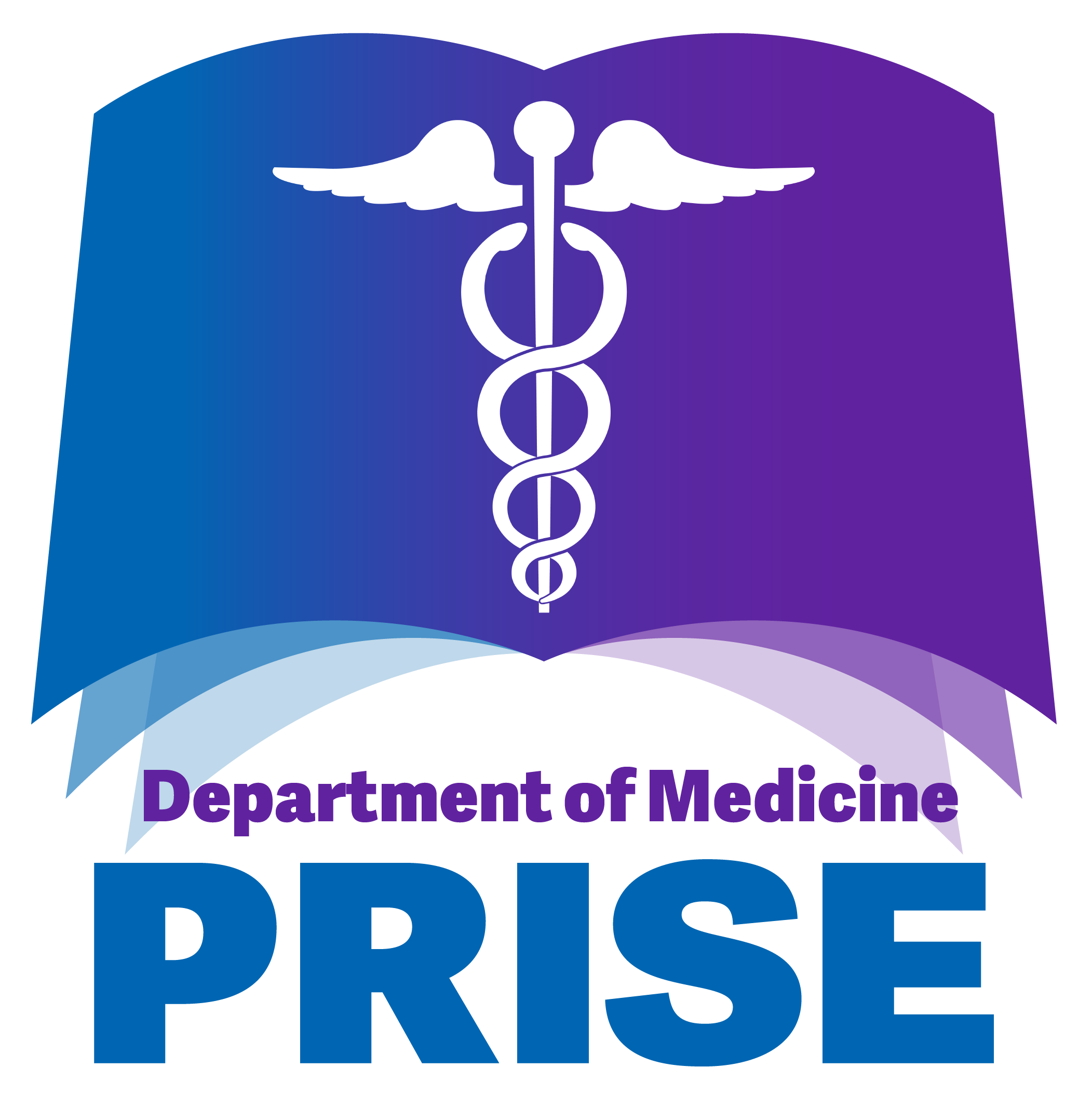Overview
This Department of Medicine (DOM) program aims to promote educational scholarship within the DOM, through scholarly inquiry into educational pedagogy, assessment systems, curriculum design, innovative educational programs etc. across the continuum of medical education- UME, GME and CME.
Goals
- Enhance educational training and research initiatives across the DOM across the continuum of education.
- Create a dynamic community of educational scholars.
- Provide training and mentorship in educational research and scholarly activities.
- Explore synergism with medical educational endeavors across departments at BWH.
Specific Steps in Detail
- Program requirement:
- Attendance at all seminars.
- Scholarly output: Abstract for the annual DOM Medical Education Retreat and Medical Education Day at Harvard Medical School (HMS) and a first-author publication resulting from the project.
- Opportunities to participate in planning and presentations at BWH DOM Annual Medical Education Retreat.
- For successful completion of the program, it is anticipated that Scholars will commit 8-10 hours / month towards seminar attendance (3 hours) and their educational project design, implementation and evaluation (as required).
- Scholars will also receive tuition to attend the 2-part Harvard Macy Program for Educators, each part 1-week long- Dates for 2021 to be announced.
- The Scholar is expected to design an educational research project that is developed under the guidance of Dr. Subha Ramani and co-mentors at BWH.
- The Scholar will write up the project for publication with the help of mentors.
- Graduation with award of a Medical Education Research and Scholarship Certificate.
Faculty
Subha Ramani, MBBS, PhD, is the Director of the DOM RISE Program. A core group of expert faculty from the DOM and BEI will lead seminars monthly on Wednesdays. Between October 1 and September 30, scholars will participate in combined BEI-RISE sessions as well as dedicated RISE sessions. Sessions will occur between 12 noon and 2:30 pm, exact dates and times will be announced in advance. All sessions are intended to be interactive workshops on core medical education research and scholarship topics with practical applications to individual projects and structured as follows:
- Journal club of core articles related to the seminar topic (some sessions)
- Interactive workshops
- Individual project development
- Guidance on project write-ups
BEI-RISE: Educators from all BWH departments will attend the BEI-RISE sessions. Through this collaboration with BEI, DOM scholars will be able to interact with educators from other departments and explore opportunities for research collaboration.
Scholars will be guided by educational leaders including Drs. Subha Ramani, Erik Alexander, Ed Krupat, Helen Shields and many others on their projects, related to study design, scope, data collection and analysis, presentation and manuscript writing.
Sample syllabus
Overview of educational scholarship and applicable theories
- Research compass
- Educational scholarship criteria
- Overview of research designs (quantitative and qualitative)
- Ethics and IRB
- Key education theories applicable to medical education
- Theoretical frameworks to guide medical education research
Curriculum design
- Framework for curriculum design
- Needs assessment
- Educational goals and objectives
- Curriculum implementation
- Frameworks for curriculum / program evaluation
Overview of quantitative research
- From topic of interest to formulating research questions
- Experimental study design
- Non-experimental study design
- Sampling
- Determining important educational outcomes and end points
- Basic statistics
Overview of qualitative research
- Differences from quantitative research
- Approaches to qualitative research
- Research questions and steps
- Data sources and collection: Focus groups, Interviews, Observation
- Data analysis in qualitative research
- Methods to ensure rigor
Survey design and development
- Developing surveys
- Designing and testing survey measures
- Assessing knowledge and attitudes (subjective measures)
- Assessing competencies and behaviors (objective measures)
Approach to assessment and program evaluation in medical education
- Principles of assessment
- Evaluating teaching- OSTE, peer observation
- Metrics of rigor- reliability, validity
- Program evaluation frameworks
Technology enhanced teaching
- Applications of different technology formats
- Using simulation in teaching and learning
- Designing online learning formats
- Social media in education
- Designing apps
Presenting your scholarship
- Preparing abstracts
- Preparing posters
- Writing manuscripts
Innovations in medical education
- Disruptive innovation
- Design thinking
- Managing change
- Leadership development
Expectations
Applicants must have the support of their Division Chief or Fellowship Director to devote the time, free of other responsibilities, to Program activities. Activities include required attendance at monthly seminars, completing assignments, and carrying out an individual project.
We anticipate a time commitment of:
- 3 hours/month for seminar participation
- 3-4 hours/month for project-related work
- 1-week in October and 1-week in May to participate in the Harvard Macy Program
The Program Director will serve as the primary project mentor along with co-mentors in a team approach to advise the scholar, guide study design, data collection and analysis and scholarship.
